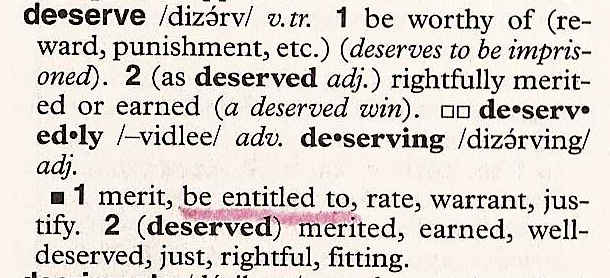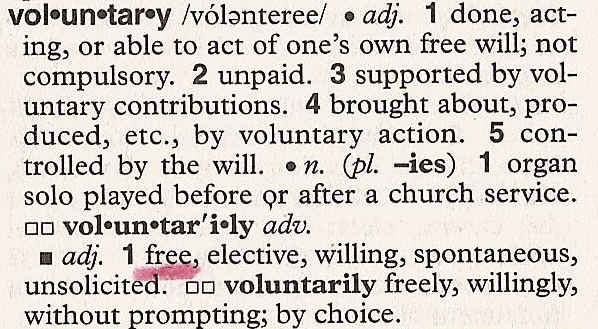As with most ideas, I’m uncertain ’bout the intelligence o’ economists—not comfortable with accepting them as intelligence ’cause some rich organizations called “colleges” say they are, but also not comfortable with just writing them off as ditsy.
Whenever I see economists try to defend their profession gainst the mean ol’ critics in mainstream media, my uncertainty is only exacerbated. They usually only make themselves look stupider, which is hard to believe from people who are apparently able to graduate from places like Harvard. My paranoiac side makes me want to believe that perhaps these newspapers intentionally pick strawmen economists to make the whole profession look bad, though I’m not sure why they would. I dunno.
Neither precludes us from pointing & laughing, however.
I. Mankiw Doesn’t Know What the Hell He’s Protesting
In smugly-titled New York Times article, “Know What You’re Protesting,” Harvard economist Greg Mankiw protests gainst Occupy Wall-Street hippies & somehow makes them look like scientists & him look like a postmodernist-sputtering hippie. ’Gain, my paranoiac side makes me think this is an elaborate troll-job on Mankiw & Occupy’s part.
He starts with paragraphs o’ self-fellating/self-pitying backstory wherein he treats a li’l walkout as if ’twere the French Revolution. How did you live through it, Mankiw? I hope your metaphorical tweed suit was not ruffled by such uncouth behavior.
I particularly loved this bit:
I have been told that at least one of the students who walked out sneaked back in later: he wanted to support the protest but didn’t want to miss the lecture [Emphasis mine].
Apparently this Harvard-educated scientist never took a single rhetoric class, since if he did, he’d know that “I have been told” is known as weasel-words & that no true scientist uses them. They provide evidence or shut up.
To be fair, this is a believable story: Mankiw’s amazing lectures are, I’m sure, a life-changing moment that could never be replaced by, say, reading 1 o’ the millions o’ economics textbooks out there. How can anyone learn ’bout the Phillips Curve with mere text when one could hear it through Mankiw’s sexy voice? Everyone knows Mankiw’s lectures are fucking rock concerts. I bet this totally-not-imaginary student made sure to get a front-row seat with a bucket o’ popcorn in-hand.
If anything, we should expect the opposite: lazy students pretending to protest so they can sneak a free hour to smoke pot, get laid, make Super Mario World rom hacks, or whatever you punks do nowadays.
If there is any truth to this claim, the answer obviously is that some student stoned out o’ his mind saw the other students walk out; thought, O, is class over already?; & went out with them, only to learn the truth afterward & sneak back in thinking, O shit. Whoops.
So what is his—Mankiw’s, not the stoner’s—rebuke to these foolish peons? Well, after he digresses into some irrelevant bullshit ’bout the 70s, he makes a strong case for his class:
It includes ideas of many greats in the field, like Adam Smith, David Ricardo, Arthur Pigou, John Maynard Keynes and Milton Friedman.
A whole 1 o’ those lived past the 1950s, too! Clearly Mankiw is on the cutting edge o’ economic science. Those students will surely leave that classroom with impeccable knowledge o’ how to get the most cows from bartering pigs.
Then he parrots some student newspaper’s appeal to “nonpartisanship”—an imaginary concept idiots make up so their ideas don’t have to be held up to any authentic standards, & thus have their idiocy revealed. He, ’course, doesn’t provide evidence for his nonpartisanship—as no centrist ever does, since it’s based on an imaginary scale. As true scientists, we should take his word without skepticism.
He then devolves into cretinous dick-sucking o’ Paul Samuelson & whining ’cause some bearded Marxist whined ’bout him not being a bearded Marxist. I could whine for a whole article ’bout he & Nordhaus’s Economics & how the claim that it’s nonideological is as blatant a lie as saying the sky is green; but for now I’ll simply note that Mankiw himself provides no reason why I should like Samuelson’s work other than that Mankiw calls him “left-o’-center.” I love how people who complain ’bout ideology can use nothing but ideological words to defend their arguments—almost as if they’re completely full o’ shit. The fact that “left-o’-center”1 doesn’t mean anything concrete doesn’t hinder this Harvard economist 1 bit. What a scientist!
I think this was meant to be his bid to cater to the silly leftists, which isn’t consistent with his claim that he doesn’t serve ideology. But if he knew anything ’bout leftists, he’d know its various clans hate each other, anyway. The “left” includes some o’ the most libertarian & totalitarian ideologies in the world; “left” doesn’t mean shit.
Warning: explicit handjobbing ’head:
I don’t claim to be an economist of Paul Samuelson’s stature. (Probably no one alive can.)
Unfortunately, the vile Marxists have a rebuke: Ha! That doesn’t include Zombie Marx!
Back to serious—O, wait, I’m reading an economist’s op-ed. There’s nothing serious here.
Yet, like most economists, I don’t view the study of economics as laden with ideology.
“In our opinion, we’re not idiots.” Apparently, this “scientist” still hasn’t realized that opinions without evidence or rationale are worthless. People will decide for themselves whether you’re ideological or not—& so far you have proven yourself not so, if only ’cause ideological people require a’least some intellectual content in their loony theories.
Most of us agree with Keynes, who said: “The theory of economics does not furnish a body of settled conclusions immediately applicable to policy. It is a method rather than a doctrine, an apparatus of the mind, a technique for thinking, which helps the possessor to draw correct conclusions.”
Well, that is wise, & not mindless buzzwords strewn together: “Economics doesn’t make conclusions; it just chooses methods o’ thoughts based on the conclusions toward which they inevitably lead. Totally different.”
That is not to say that economists understand everything. The recent financial crisis, economic downturn and meager recovery are vivid reminders that we still have much to learn.
So far you’ve yet to show that economists know anything. Literally, the only evidence you’ve given is points in which economists have failed.
Why do so many articles I argue with end up arguing with themse—Mankiw’s ’nother 1 o’ them! You think I didn’t notice the way you slyly snuck in that reference to Zombie Marx. You’re 1 o’ them, too. They’ve taken over every economic school & pit them gainst each other while they sneakily take over. Damn you crafty Marxists.
Widening economic inequality is a real and troubling phenomenon, albeit one without an obvious explanation or easy solution. A prerequisite for being a good economist is an ample dose of humility.
O, fuck off, David Brooks. Then you must be a shitty 1, considering all o’ the self-fellatio earlier.
I want to note ’gain that Mankiw’s basic conclusion is: “Occupy Wallstreet protesters are dumb ’cause they don’t believe I’m equipped to talk ’bout economics, & I agree with them.” Maybe that’s the humility he’s talking ’bout: the paradox o’ an economist who knows he’s an idiot—& yet ’cause he’s an idiot, his knowledge that he’s an idiot must be wrong. “I think I’m an idiot… they think I’m an idiot… I am an idiot… therefore, they must be idiots, too. QED.”
I want to point out the letter Mankiw made the mistake o’ linking to, as it ’gain demonstrates how much smarter Mankiw’s students were than him. I want to particularly emphasize this paragraph:
A legitimate academic study of economics must include a critical discussion of both the benefits and flaws of different economic simplifying models. As your class does not include primary sources and rarely features articles from academic journals, we have very little access to alternative approaches to economics. There is no justification for presenting Adam Smith’s economic theories as more fundamental or basic than, for example, Keynesian theory [emphasis mine].
“Those ideological leftists! All their hippie slogans o’ ’primary sources’ & ’academic journals’!”
Mankiw should take his own advice to know what he’s protesting; others may do the same & won’t have a high opinion o’ his rebuttal when he doesn’t.
Addendum:
I have later learned that “left-o’-center” Mankiw also wrote a delightful paper titled “A Defense of the One Percent,” which is so full o’ hilarity that I may have to dedicate a separate article to it.
The briefest I could say is that its use o’ references barely rises ’bove infantile book reviews & that its overall scientific value is akin to the kind o’ papers I wrote in my freshman Sociology class. I hope this was just something a drunken Mankiw spewed out in 1 night & not something that reached an actual economics journal. I mean, I know they have the highest o’ standards & all. Not like those silly li’l sociologists!
II. Nonfalsifiability: the Apex o’ Science
Our next example is by Andrew Lilico, with ’nother modestly-titled article in the Telegraph, “Good economists are almost always right about almost everything,” forgetting to add the important adage that a good economist is hard to find—& impossible in this tripe.
Good economists are usually about as right as it’s possible to be. There, I said it.
Whoa, hold on there, George Carlin. I can’t take this edgy stand-up next to my Mutts & Family Circus.
I love how ’gain he qualifies it with “good,” & qualifies it further with “as it’s possible to be,” to maximize meaninglessness. I’d think being usually correct is what would define a “good” economist: the true debate is whether most economists are good.
That shouldn’t be controversial. After all, that’s why economists get paid so much…
Nothing’s mo’ scientific than the “Just-So” fallacy.
& I’m sure quite a few heterodox economics make a lot o’ money, too, so this assumption is not only invalid, it’s conclusion is self-contradictory.
…and why societies managed according to economic principles such as sound money, secure property rights and effective competition are much more prosperous than others.
“These societies that exist in my fantasies.”
Actually, most o’ the most prosperous countries are those vile socialistic Nordic countries & Switzerland, which are well known for lots o’ income redistribution & having some o’ the greatest tolerance for intellectual-property piracy. So “secure property rights” is wrong, & “sound money” & “effective competition” mean nothing mo’ than “good things,” & thus prove nothing. An economist’s job is to determine what money is sound & what competition is effective, not to just say that good things are good.
It’s why so much everyday government policymaking is dominated by economic reasoning, from the price controls imposed upon utilities, such as water and electricity (even called “economic regulation”), to the rules on how economic reasoning has to be used in devising regulation and setting taxes (so-called “impact assessments”).
I’m glad he emphasizes this “reasoning” aspect I’ve never heard ’bout before. I’d usually run my economy like Mario Party: just roll & hope we land on boom! Oops! Landed on a Bowser space! Gliosmar Gutenberg owes $20 trillion in taxes. Better luck next time, Gutenberg.
I love how these economists are so simpleminded & yet so arrogant that they have to make up imaginary opponents to hide the fact that they can’t argue gainst their authentic critics. This is Ayn-Rand level strawmanning: “They can’t be arguing gainst my logic, since it’s so impeccable, so they must just reject reason itself.”
It’s why the tools of economic reasoning, such as game theory, have come to dominate so many other disciplines, from evolutionary biology through moral philosophy to political science and military strategy, most famously including nuclear weapons policy — there is even a branch of physics called “quantum game theory”.
I’ve read quite a few scientists disagree. For instance, I’ve read biologists correcting some economists’ hilarious ignorance o’ biology. Meanwhile, physicists are so opposed to mainstream economics that they made up their own field. Indeed, I’ve noticed a pattern o’ other scientists mocking economists for thinking they’re smarter than they are.
I must confess that this & my broad reading o’ works by famous economists has colored my perception, which is not helped by Mankiw & Lilico. However, I’ll give other economists the benefit o’ the doubt & assume these 2 got in by sucking someone’s dick—forgive me if I doubt carpet-cleaning will get one far in the immensely progressive field o’ economics—or something.
It’s why your television screens are full of economists every day, explaining not just news events, but almost everything, from which football managers are the most skilled to why singer Katherine Jenkins is so successful.
“We may suck @ predicting recessions; but we can predict which team will make the Super Bowl—Go Tunnel Rhinos!”
Some such challenges are easily deflected. Orthodox economics tells us that it is impossible to predict significant financial crises in advance – or else everyone would predict them and trade off that and so they wouldn’t happen. There’s little point in criticising economists for being unable to predict shocks they say are impossible to predict.
“It doesn’t matter if we suck—we’re s’posed to suck. So there!”
Some textbooks will tell you economics is the study of incentives. I unpack that as follows: economics is the discipline that tells you why behaviour makes sense.
“I’ll unpack that by misinterpreting it.” The idea o’ incentives is that you try to influence certain behavior by making that behavior mo’ beneficial; that’s kilometers ’way from manufacturing explanations for why any action is “rational.” I should point out that none o’ these prove that economists are good @ setting incentives (Hint: in a society where bankers are rewarded for fraud by giving them bailouts & stay-@-home spouses are punished for doing society-benefiting work, they aren’t.)
Ironically, “behaviour makes sense” makes no sense. What behavior? Just behavior in general? Is that the bold stand he takes? “I think it’s time we behaved in some fashion, unlike all those inanimate people vegetating round. There, I said it.”
Hey, wait… Is he just regurgitating Mises’s tautological “human action” nonsense? Is Lilico an Austrian economists pretending to be 1 who doesn’t living in a cave? Get out o’ the neoclassicals’ chair, Lilico! We’re s’posed to be having a serious discussion here.
If my left arm goes up, a physicist might tell you about the atoms and molecules and forces that took it there. A biologist might tell you about the electrical impulses in the nerves in my arm and the hormones and energy transport in the blood. A certain sort of old-fashioned psychotherapist might tell you about how raising my left arm resolved the struggle between my super-ego and my ID. But economics is the discipline that seeks to explain why I raised my left arm in terms of why that made sense to me, given my objectives and beliefs.
See, the difference is that the former 2 are actually science, while the latter 2 are just shit people make up in their head that have no way o’ proving or disproving—also known as “pseudoscience.” It’s good to hear that economists presume to read every individual’s mind. No wonder “good” economists are right ’bout everything: they literally have psychic powers.
But rationality is not an assumption of orthodox economic theory in that sense. Instead, it is what is called an “axiom”. No behaviour can prove that people aren’t, in fact, rational, because for an orthodox economist the only kind of explanation of any behaviour that counts as an economic explanation is an explanation that makes sense of that behaviour — that shows why the behaviour is rational.
“So, you see, economics is nonfalsifiable, & thus pseudoscience.”
Economists are apparently like spoiled brats who just make up rules when they start to lose. “Ha! You think you checkmated me, but I’ve decided that that move doesn’t count as an economic explanation ’cause I say so, so you lose.”
Irrationality and other heterodoxy is usually little better than an all-encompassing conspiracy theory, explaining everything and thus nothing — for while many behaviours may not be rational, there is no behaviour that is not irrational.
That’s just the flip-side o’ your argument, & thus yours is just as stupid.
In the 19th century economics faced a mystery. In the Irish potato famine of the 1840s and during the Paris Commune of the 1870s, when the prices of staple food (in the one case potatoes, in the other bread) went up, demand went up also. Pondering this mystery, economists eventually reasoned as follows.
(Slaps forehead.) This makes no sense! Why would people continue to demand food when the price has gone up? You’d think their desire to end deathly agonizing starvation would transfer to cheaper demands—like kitten stuffies—to maximize their utility.
To be fair, he does answer with this very same obvious point. So apparently “good” economists are as smart as some likely-mentally-unstable bum blogging ’bout his favorite Donkey Kong Country levels2. So where’s my check then?
So, his idea o’ “good economics” is psychoanalysis—making up any reason one can to ensure any possibility turns out “rational”? Then it’s fitting that he brought up Freudian psychiatry, since his beliefs are just as scientific.
’Course, psychiatry has evolved from Freudianism into something far mo’ scientific. Let’s hope economics does—or has already done—the same by ignoring kooks like this guy.
Suppose instead we had answered: “Obviously, if people were rational, then when prices went up they’d buy less. But they aren’t always rational, as demonstrated by the examples of bread and potatoes.” Then we would have missed the key insight.
We’d be dumbasses. Thankfully, the only heterodox economists who say that exist in Lilico’s fever dreams. I think they’d usually use mo’ potent examples—like pointing to a YouTube video o’ some drunk fuck in a cowboy hat & whip jumping into a bear’s cage so he can try riding it.”
Contrary to most popular commentary, the main financial economics models have worked extremely well during the financial crisis, and remain in place.
“Just look @ the good job we’ve done making up in our head explanations in retrospect for economic phenomena that happened almost 200 years ago. Where would we be without economists?” This is indeed a good sign: we need only wait till round 2190 for economists to finally figure out why this bewildering depression happened.
But even supposing they hadn’t, that wouldn’t have proved we should abandon the attempt to make sense of events; to abandon the attempt to offer an orthodox economics account. For very often it is when we are forced to grapple with a mystery, with behaviour that does not at first seem to make sense, that we produce the greatest insights.
“No matter what, we win. That’s my favorite part: I absolutely hate standards. Then I couldn’t get rich writing mindless tripe like this.”
The insights orthodox economics will eventually produce in reaction to the financial crisis will advance our social and economic life and prosperity even further than economics has done already. For good economists, given time and sound theory, are almost always right about almost everything.
Ha, ha, ha! I can’t fucking believe he repeated my joke as a serious advantage o’ economics.
You know there’s only 1 explanation for this: since, as any “good” economist will note, all actions are rational, this article’s sloppy logic must be rational. There’s a perfect explanation: Lilico’s ’nother Marxist rationally writing nonsense to discredit mainstream economics & push the public into the hands o’ communism.
They’re everywhere now.
Addendum:
For an actually intellectually-valuable critique o’ Lilico’s fine work by an authentic economist, one can read this article by Steve Keen, which claims that Lilico didn’t even interpret what he was defending correctly—which is unsurprising, as a lot o’ what he said didn’t even make sense. I’m glad my original but unstated thesis that these 2 are merely madman who snuck into the realm o’ economics has been confirmed.
1 Also, “left-o’-center” is a hilariously redundant. Everything to the left is “left-o’-center.” That’s what left is: anything to a specific side o’ the center. One could be an outright communist or anarchist & still be “left o’ the center.” There’s only 2 alternatives to being “left o’ center” in some regard: being right o’ the center or being in the center.
2 I expected to finish that article before this 1.
Yes, this terribly serious 1-way economics discussion I’m having took less work than ’splaining how fun mine cart levels are.







